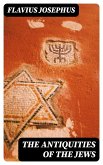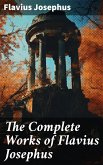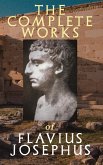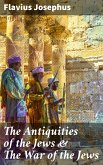In "The Antiquities of the Jews," Flavius Josephus offers a comprehensive chronicle of Jewish history, intertwining biblical narrative with cultural and political developments from creation to the Jewish War of the first century CE. Written in a classical Greek style, Josephus employs a historiographical approach that bridges the Jewish tradition with Hellenistic narrative techniques, providing insights into the sociopolitical context of his time. This work is not merely a retelling of the Old Testament but an elaborate context-building endeavor that seeks to depict the Jewish people'Äôs resilience and identity amidst external pressures and internal conflicts. Flavius Josephus was a Jewish priest and historian who played a pivotal role during the First Jewish-Roman War. His unique perspective as both an insider and an observer allowed him to articulate the complexities of Jewish life and thought to a Greco-Roman audience. Josephus's own experiences, including his eventual defection to the Roman side, profoundly influenced his perspective, shaping his intent to present Judaism as a noble tradition deserving of respect and understanding. This monumental work is essential for anyone seeking to gain an in-depth understanding of Jewish history and the cultural dynamics of the ancient world. Scholars, historians, and general readers alike will find Josephus's articulate and compelling narrative a valuable resource, deftly revealing the intricacies of a civilization at the crossroads of history.
Dieser Download kann aus rechtlichen Gründen nur mit Rechnungsadresse in A, B, BG, CY, CZ, D, DK, EW, E, FIN, F, GR, H, IRL, I, LT, L, LR, M, NL, PL, P, R, S, SLO, SK ausgeliefert werden.
Hinweis: Dieser Artikel kann nur an eine deutsche Lieferadresse ausgeliefert werden.









